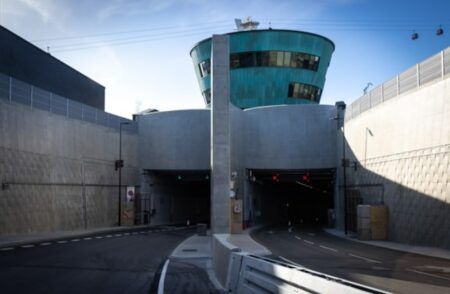London Mayor Sadiq Khan has announced a series of measures aimed at directly tackling growing congestion on the city’s roads and improving journey reliability for all road users.
Transport for London (TfL) will take immediate steps, using new and improved strategic management, technology and communication, to tackle the problem of congestion in London. The measures announced include better communication directly with road users to allow them to plan their journeys, and better collaboration to reduce disruption from road works.
As part of the plans, the Mayor is also setting out specific measures to increase the reliability of bus services, including investing £50m (US$60m) in bus priority schemes. The bus is London’s most popular form of public transport and the most efficient motorized use of road space, with almost 2.4 billion journeys made by bus in the capital each year (half of all bus journeys in England). Getting more people using buses will help tackle road congestion, and reversing the congestion that has caused bus passenger numbers to fall over the last few years is a key priority for the Mayor.
As well as outlining measures to improve the reliability of bus services, the plans include reducing disruption caused by planned or unplanned incidents, and improving journey time reliability, so that all road journeys have minimum delay in any traffic conditions. The UK government will also be lobbied for greater powers to manage road works, including increasing the scope of fixed penalty notices, and legislating around the use of cranes and hoardings that affect the road network.
Specific measures to tackle congestion include:
Ensuring that the infrastructure that supports the road network, including traffic signals and road surfaces, are reliable, faults are minimized, and repairs are carried out faster;
Communicating better with road users to allow people to make more effective decisions about their journeys, based on the most accurate and up-to-date information;
Collaborating more efficiently with local authorities, utility companies, and developers, to reduce the impact of planned road works.
The plans are targeted at easing the immediate congestion problems facing London. This is alongside other more long-term strategic approaches being developed as part of the Mayor’s Transport Strategy, due to be published in Spring 2017.
Announcing the measures, Khan said, “Ensuring people can get around our city easily and efficiently is vital for London’s future prosperity. We need to be much smarter in how we use our roads, and tackle the causes of congestion head-on. I’m setting out practical and immediate steps we can take to reduce disruption, including better prioritizing buses on our streets, better information for road users, and substantial improvements in how road works are coordinated. It’s now crucial that these changes are implemented alongside our longer-term plans to make cycling and walking more appealing. Ultimately, while today’s plan sets out some important practical steps, we can only tackle congestion in the long term by making public transport more affordable, and making cycling and walking more appealing choices for all Londoners.”




